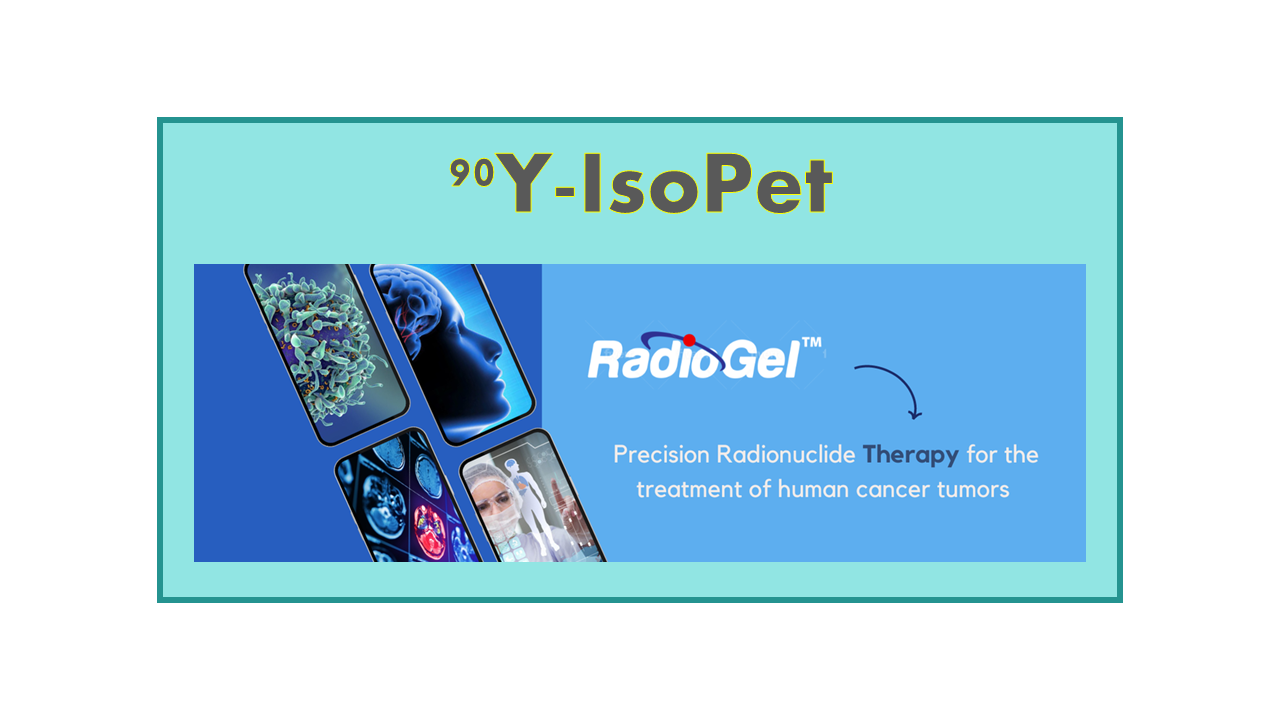
90Y-IsoPet
March 28, 2024
90Y-IsoPet is a novel radiopharmaceutical used in the field of nuclear medicine for targeted radiation therapy. It consists of the radioisotope yttrium-90 (90Y) attached to a specific targeting molecule, which allows for the selective delivery of radiation to cancer cells. The targeting molecule used in 90Y-IsoPet is designed to bind to receptors or antigens that are overexpressed on the surface of cancer cells, thereby minimizing damage to healthy tissues.
The high-energy beta radiation emitted by yttrium-90 has the ability to penetrate tissues and deliver therapeutic doses of radiation directly to the cancer cells. This targeted approach helps to minimize systemic side effects and maximize the efficacy of the treatment. 90Y-IsoPet is primarily used in the treatment of solid tumors, such as liver cancer and neuroendocrine tumors.
Overall, 90Y-IsoPet represents a promising advancement in the field of nuclear medicine, offering a more precise and effective treatment option for certain types of cancer.
Description
90Y-IsoPet® is a hydrogel liquid made of water-based biodegradable polymer that delivers 90Y-microspheres directly into tumor tissues. At body temperature, the product polymerizes into a lattice that traps the 90Y microspheres in place. It is developed by the company Vivos Inc.
IsoPet® is a technology for use in local high-dose radiation therapy. It was developed by Battelle under the name RadioGel and was acquired by Advanced Medical Isotope Corp. (AMIC) in February 2011. AMIC was renamed Vivos Inc. in 2017. In 2019, the company started selling this product in the US and EU for veterinary nuclear medicine application under the brand name IsoPet®.
AMIC has filed 510(k) pre-market notification to the US FDA in November 2013 for developing RadioGel for human applications. The initial indication was prostate cancer. In February 2014, the FDA determined that the product is classified by statute as a Class III medical device. Additional data have been requested by FDA, but over time, it appeared that launching a veterinary formulation would at least generate cash, while RadioGel can be further developed in parallel for human use. Despite the same formulation, the FDA advised using different product names in order to avoid confusion and cross-use. The veterinary formulation is sold under the brand name 90Y-IsoPet® while the human formulation, when available, will be sold under the brand name 90Y-RadioGel™.
Clinical applications
The injectable IsoPet® (or RadioGel™) is administered directly into the tumor and may also be administered transdermally or intraoperatively when treating solid tumors that cannot be removed safely by surgical excision, such as inoperable liver cancer, brain tumors, head and neck tumors, kidney tumors, and pancreatic cancer. The Company is also engaging the FDA for premarket clearance to market RadioGel™ for the treatment of advanced basal and squamous cell skin cancers in humans.
The testing of IsoPet on feline sarcoma at the Washington State University was completed in 2018 and the testing on canine soft tissue sarcomas at the University of Missouri was completed in 2019. Eventually the veterinary formulation came on the market. Results of animal data have been published in 2020.
Competition
In veterinary applications, IsoPet does not have any competitor as radiolabeled BT device. However as veterinary centers are not used to work with radioactive material, it may take time until this technology will be widely used.
Treatment for pets currently costs about US$ 9,500.
Comments
The approach developed by Vivos and based on entering the veterinary market to generate cash for financing the development of the human formulation is similar to the one initiated by Convetra/Exubrion with its 117mSn-HTC drug used in radiosynovectomy. Both companies will face the same constraints, which will be to work in veterinary centers authorized to manipulate radioactive material. Even if the market is quite large (25% of dogs over 10 years old suffer from cancer), the ramp-up phase may take a long time.
Vivos is also developing 90Y-Polymer Topical Paste which is intended as a supplemental treatment to be applied to a surgical incision to kill residual tumor cells. Development of this product is not as advanced as for 90Y-RadioGel, but could also be interesting for veterinary applications).